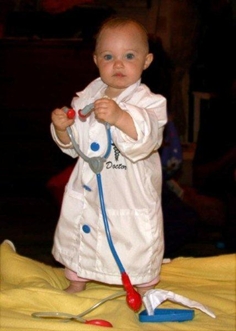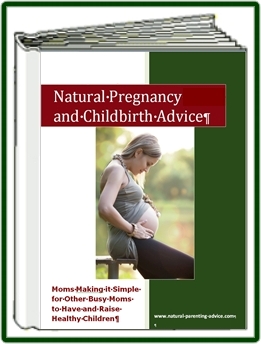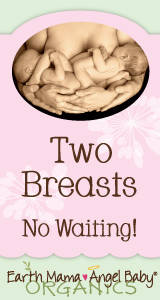Women Breastfeeding in Public

Women breastfeeding in public has become a controversial subject. Here we provide some perspective on the issue as well as tips for how to breastfeed in public.
People get so caught up about women exposing their breasts in public that they forget the true issue here is not women’s rights or the feelings of adults. The true issue is providing the best nourishment for our children.
Babies can’t go as long between feedings as adults can. Most people that have had children know that toddlers and young children break down very quickly when they are hungry. For this reason, busy mothers - particularly those with more than one child - need to be able to breastfeed their children in public. When coordinating swimming lessons, nursing and napping schedules for more than one child, we must have the flexibility to nurse (when our baby needs to nurse) at the same time we provide for the needs of our older children.
This doesn’t mean that we schedule our day so that we are making a point about women breastfeeding in public. Most of us at natural parenting advice rarely breastfeed our children in public. Why? Because public settings are distracting to a baby, particularly after they are a few months old. It is hard to get a baby to have a full nursing while in public. Therefore, we only do it when it is necessary, when the schedule of our family requires it.

An example of this is when Maria’s older children are at swim team practice. Sometimes there isn’t time to nurse her baby before practice. At the same time, Maria is not comfortable letting her older children out of her sight despite there being instructors present. With the adult to child ratio at 1:10, she wants to keep an eye on her kids while they are in the pool. Nursing in the car where it is quiet and there are less distractions is not an option. So she nurses poolside while she watches her older children swim.
You may be thinking what do these crazy mothers at Natural Parenting Advice know about women breastfeeding in public if they don’t do it very often? You have to realize, that while we prefer to nurse in places with less distractions, over the course of nursing each our 2-4 children for 2-3 years, we have had plenty of experience nursing in public - because our family schedules have required it. We have likely breastfed in public more often than the “typical” mother in the United States nurses altogether. This isn’t hard when the United States has one of the lowest rates of breastfeeding in the industrialized world (along with one of the highest rates of infant mortality).
Need to Talk To Someone?
Do be very specific or personal questions you do not feel comfortable discussing in public forums? If so, please meet signing up for a 60 minute mentoring session.
Pregnancy & Childbirth Mentoring
You will be amazed at the Amount of information and can gain confidence in just a few minutes of one-on-one help.
Data from 2003 indicates that 71 percent of U.S. mothers initiate some breastfeeding, but only 36 percent report feeding any human milk to their infants at six months.
Meanwhile, The World Health Organization recommends babies are breastfed exclusively for at least the first six months of life, with complementary foods and breastfeeding recommended up to two years of age.
Breastfeeding builds brighter brains and healthier children
Another major objection to women breastfeeding in public is the perception that feeding a baby a bottle is just as good as the nutrition a baby gets while nursing. This common misperception infuriates us.
The science if very clear on this point. Bottle feeding provides nowhere near the nutrition, enzymes, immune factors and other elements that a baby requires. Sure most babies survive despite being bottle fed, but that shouldn’t be confused with it being the best thing for them.
We have known for a while that breastfed babies have 7-10 point higher IQ’s than bottle fed babies.
From a 2001 BBC News Report ):
“Norwegian and Danish researchers looked at 345 children between 13 months and five years old and studied how long they were breastfed.
They found those who were breastfed for less than three months were more likely to score below average for mental skills at 13 months and have lower IQ levels at five years, than those who were breastfed for six months or more.
Even taking into account the mother's age, intelligence and education and whether or not she smoked, they found the differences persisted.”
Everything You Need to Know!
All of our best pregnancy and childbirth tips in this informative e-book.
Learn how to:
- Have an Amazing Pregnancy
- Avoid any Unnecessary Pain
- Plan the Birth Of Your Dreams
As reported in Science Daily in 2007:
“In two studies of breast-fed infants involving more than 3,000 children in Britain and New Zealand, breastfeeding was found to raise intelligence an average of nearly 7 IQ points if the children had a particular version of a gene called FADS2.
Ninety percent of the children in the two study groups had at least one copy of the "C" version of FADS2, which yielded higher IQ if they were breast-fed. The other 10 percent, with only the "G" versions of the gene, showed no IQ advantage or disadvantage from breastfeeding.”
As reported by MSN on March 14, 2011
A UK study conducted by Oxford University and the Institute for Social And Economic Research (ISER) which “is following the development of 14,000 children born between 1991 and 1992. Children were tested at ages five, seven, 11 and 14. At each age breastfed children outperformed those who were fed formula.”
The Western Australian study, the results of which were published in the Jan 2011 issue of Pediatrics, which “studied more than 2900 children born between 1989 and 1991 from before birth to the age of 10” and “found that boys who were breastfed for the first six months of life received significantly higher scores in math, reading and spelling compared to formula-fed children with the same socioeconomic background.”
In addition to being smarter, a variety of studies have demonstrated that breastfeeding increases a child’s immunity to disease and infection. Breastfed babies have fewer ear infections, are sick less, have fewer cavities, fewer allergies, less childhood cancer and less juvenile diabetes. An excellent article that describes the health benefits of breastfeeding (http://www.nrdc.org/breastmilk/benefits.asp) in detail.
If you don’t feel confident about breastfeeding in public, read these studies for yourself! Look at the ever-changing ingredient list on formula. Reference the controversy around adding DHA to formula (docosahexaenoic acid) first it was promoted as being healthy, “more like breastmilk”. It made babies smarter, not as smart as breastfed babies, but as having better cognitive skills than babies fed formula not supplemented with DHA . But wait, more recent studies are showing that that the synthetic forms of DHA and AHA that are being used in formula is actually harming babies .
For someone to insinuate that formula is “just as good as breastmilk” is not just shameful, it is a flat out ignorant.
For us at Natural Parenting Advice, the research motivated us to nurse our children despite working full-time. The thought of children having to suffer with asthma or diabetes for their entire lifetime motivated us to breastfeed and express breast milk despite traveling for work and spending long hours at the office.
We feel strongly that the number one thing we can to ensure the health of our offspring is to nurse them for the first year or two of life while their immune and digestive systems are developing. For more information - read about the many advantages of breastfeeding for working mothers and great tips for how to breastfeed while working .
In the women breastfeeding in public debate, it is the health of children everywhere that should take priority, not the “sensitivities” of adults who are perfectly capable of looking the other direction.
We have breasts so that we can breastfeed our children. If you look at the biology of how breasts work to make and deliver breast milk it is clear that their primary purpose is to nourish our offspring. That they have become objects of entertainment is secondary. (If your husband doesn’t agree with you about this have him read Advantages of Breastfeeding vs Bottle Feeding ).
Now for some how-to advice for women breastfeeding in public…
Tips for Women Breastfeeding in Public

Wear a shirt or have a blanket on hand to block out distractions - Breastfeeding in public is distracting for most babies, especially as they get older. For this reason, it is helpful to wear a big shirt or have a blanket/cloth/towel you can drape over your shoulder and your baby while you are nursing. We prefer to simply wear a shirt that is loose so that we can drape whatever we are wearing down over our baby’s head while they are nursing.
Pick a spot that has less distractions - We always look around to find the best possible option out of those available to breastfeed. If we can find an area set away from foot traffic and noises, it is easier to get a good nursing in. We will often use our children, husband or friends as “human walls” or dividers to help block out visual distractions. If our baby is particularly distracted by noises, we will hold off on chatting with others while we are nursing.
Get comfortable - Be sure to get as comfortable as possible while you nurse. Your milk flows best if you are relaxed. Since it is more comfortable to nurse with something to support your back, we look for a chair, a bench or a wall to lean against. If you need extra support, be sure to bring something to prop your baby on while you nurse. Arrington carries her Brest Friend Nursing Pillow with her if she needs to nurse because it provides a wonderful shelf for her baby to rest on. Best yet, Arrington’s back and arms don’t get strained. Other women prefer using a baby sling (see picture).
A little planning and forethought makes breastfeeding easy - either the evening before or in the morning, review your day. Hopefully you have already established a routine whereby your baby is used to nursing every three or four hours (depending on age). With a routine in place it is easy to map out when you need to nurse and where you will be - ahead of time.
TIP: most of us working moms use Microsoft Outlook linked to our PDA and have nursing or pumping set up as a reoccurring calendar appointment every three or four hours, depending on how old our baby is. That way our time is already blocked out. If people try to schedule a meeting over the blocked time, we simply refuse the meeting (“due to a prior conflict”) which they should have seen when they attempted to schedule our time in the first place. When you map your day out this way, it is easier to identify small adjustment you can make - like getting to swim practice 10 minutes early and nursing your baby in the car while your older kids read. At the outset, this sounds like a lot of work, but trust us, it isn’t. Once you get the hang of it, it comes easily. It is just a matter of organizing your day based on your priorities.
Handling the objections of others while you are breastfeeding in public
Women breastfeeding in public have a wonderful opportunity to educate others about the importance of breastfeeding. Consider carrying a couple articles with you that detail the benefits of breastfeeding. The following are excellent:
- Benefits of Breastfeeding by the NRDC
- Nursing the World Back to Health by La leche League
You can also download and print the brochure Benefits of Breastfeeding by the California Department of Public Health.
When you understand the nutritional value of breastfeeding along with the protection breastfeeding provides your baby from disease, it is easy to get angry with people that haven’t done a lick of research themselves. Remember, formula manufacturers have spent millions of dollars trying to convince the public that formula-feeding is just as good as breastfeeding. Until you had children yourself, you probably didn’t know.
When handling objections to women breastfeeding in public there are four important facts to get across, depending on the situation.
- Nursing provides important nourishment and immunities that formula doesn’t provide.
- You have done your best to be discrete, but the needs of your family and your baby necessitate that you nurse now.
- You respect their right to raise their children as they see fit and they need to respect your right to nourish your baby as you see fit.
Women breastfeeding in public extract more milk than pumping does. We do not express breast milk instead of nursing in public. Why? Because our baby will extract more milk from our breasts than our breast pump will. If you are with your baby it is ALWAYS better to nurse than pump breast milk ahead of time. You need to let your baby completely empty your breasts to stimulate optimal breast milk production. We express breast milk only when we are separated from our baby (at work or traveling for business) and we try to nurse as much as possible to keep our milk production up.
Always keep in mind that the opinions of others are less important than the needs of your baby. There is nothing more tragic than a mother who makes choices based on what other people think instead of what her baby really needs. Those other people aren’t going to pay your baby’s medical bills. They aren’t going to spend sleepless nights at home and at the hospital to parent your child if he or she becomes chronically ill. Your baby is completely helpless and dependent on you for protection, nurturing and the best possible nourishment.
From this perspective objections to women breastfeeding in public make us ANGRY, they don’t make us feel bad or embarrassed. You should feel proud that you are doing the very best for your baby. If you aren’t getting that feedback from your friends and family, please join our blog for support as well as mother-to-mother tips and suggestions! You need to surround yourself with like minded, educated women who support and value you for the incredible and important job you are doing!
How to handle objections to women breastfeeding in public
For all women breastfeeding in public, the best idea for handling objections is to keep it short and concise. You don’t want to get into a big discussion with someone who is vehemently objecting to women breastfeeding in public. A big discussion will accomplish as much as trying to get a religious zealot to change their religion.
We don’t expect that you will be confronted by people objecting to you breastfeeding in public very often -if ever. There have only been one or two instances of someone objecting to us breastfeeding our babies in public either directly or behind our backs.
When confronted directly
Practice a couple standard responses to objections ahead of time so they flow off your tongue even if you feel angry or embarrassed in the midst of it. As with any conflict it helps to reiterate their objection in your response so they know you have “heard them” .
Good examples of this are:
- I understand you don’t like the fact that I am nursing my baby. You need to respect my right to nourish my children as I wish.
- I’m not telling you what and how to feed your children. Please provide me the same respect.
- I understand you don’t want your _______ (husband, children, auntie, great-grandmother) seeing my breasts. This is not a provocative display. I am using my breasts to nourish my child as they are meant to. Instead of trying to convince me to stop providing for my child, I suggest you focus on keeping your ____(fill in the blank) from looking - if it really bothers you that much.
For those behind-the-back objections
Nothing is worse than someone at the country club or part of the swim team complaining to others behind your back about you breastfeeding in public.
You have three options:
- Ignore it
- Confront the person
- Educate others
Ignore it means pretending that it isn’t going on. Take the high road, confident in your knowledge that you are doing your best for your baby.
Confronting the person means seeking them out and delivering one of the messages above as you see fit. Some wording ideas for how to start the conversation:
- “__________ told me that you were complaining about me breastfeeding at swim practice today. I wanted to let you know that I don’t appreciate you talking about me behind my back.” Then if they make a direct complaint, follow up with one of the responses listed above.
- “I overheard you complaining to _____ about me breastfeeding my baby at the picnic today. I’m sorry it makes you uncomfortable but, I don’t tell you how and when to feed your children and I expect the same respect back from you.”
- “I understand you have a problem with me breastfeeding my baby during ______’s soccer games. I’m sorry that you find it upsetting, but I need you to respect my right to nourish my baby.”
Again, practice wording that you are comfortable with ahead of time so that if you are ever in the situation you are not at a loss for words. AND If you ever find yourself at a loss for words, always remember that a simple negative shake of your head is all that is needed.
Educate others about the benefits of breastfeeding
Educating others means first educating your older kids about why breastfeeding them was so important. It means explaining to them that their own good health didn’t happen by accident. It means describing what it means to be less intelligent and discussing how their life would be different if they were constantly sick or suffering from asthma.
One of the biggest problems with people talking behind your back is that it can make your own children feel embarrassed if they don’t know how important was to their own health. Even if they are embarrassed at the time, remember, it isn’t always what we say, it is what we DO that our kids will value as adults. Your daughters are more likely to breastfeed their own babies if they see you doing it.
Educating others is tricky because you don’t want to appear defensive nor do you want to shove information down the throats of people that aren’t open to learning. You can’t change someone else’s "religion".
What you can do is put the information out there. Carry handouts about the benefits of breastfeeding and leave them around for others to pick up and read (in the locker room, on a picnic bench, in the women’s bathroom, on the bleachers, etc.). Explain to other mothers up front how scheduling conflicts require you to breastfeed in public from time to time and that, while you don’t like making anyone uncomfortable, you would appreciate it if they respect your right to care for your baby.
Handling objections from family
Some of the objections that are the hardest to handle are those that come from our own families. Not necessarily to women breastfeeding in public or at family events, but to the fact you are breastfeeding for longer than they view necessary.
When this happens, we like to make two points:
- Our baby’s immune system is developing for the first two years of life. Therefore, breastfeeding during this entire time is necessary for our child’s optimal health. Reference the World Health Recommendation above.
- We are completely confident that our baby will stop nursing before he or she starts driving (smile sweetly) and we plan to nurse for as long as possible. Read When to Stop Breastfeeding and How to Stop Breastfeeding for more about this.
What Would You Like To Do Next?
We hope that you have found this information about women breastfeeding in public helpful! Please read some of our other articles like Breastfeeding and Working and Breastfeeding Tips .
Read more about the Importance of a Healthy Diet, especially for babies, children and nursing moms.
Did you know that the USDA Dietary Guidelines will make you tired and overweight? Read about our time-tested Healthy Eating Pyramid
Read more about Traditional, Nutrient Dense and Organic Diets as well as the importance of consuming unrefined food.
Read about Fun Activities to do with your kids.
Visit our Natural Parenting Forum to read stories and ask questions of the community.













New! Facebook Comments
Tell us what you think!